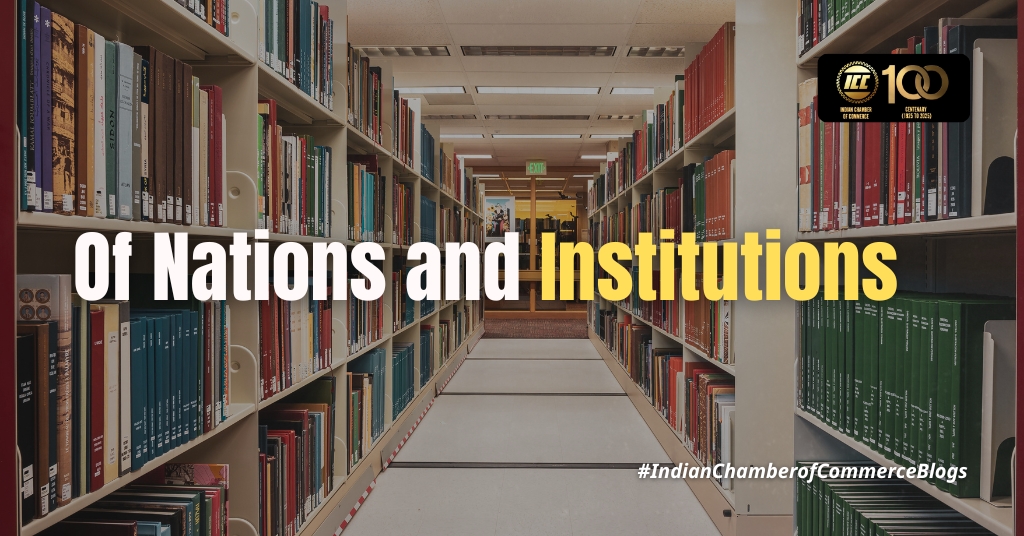Last year’s Nobel Laureates, Daron Acemoglu, Simon Johnson and James Robinson, have demonstrated the importance of societal institutions for a country’s prosperity. They helped us to understand that the difference in economic prosperity between nations is due to functioning of institutions, where instructions maintain law and order and work for the wellbeing of the masses, prosperity follows. The introduction of inclusive institutions do create long-term benefits for everyone, but extractive institutions provide short-term gains for the people in power. And exploitative manipulative people tend to remain in power, through the short-term gains, keeping the masses in poverty. If you look around with an economic eye, where can you observe it? The rapid economic growth of China and India since their economic liberalisation in the late 1970s and the early 1990s, respectively, are good examples of countries prospering soon after a significant change in the nature of the institutions or the “rules of the game” that governed their economies. Structural reforms that further improve the quality of institutions are thus crucial if these economies are to achieve living standards similar to those of high-income developed countries in the West. Countries in Africa, without naming any, have failed to move up the path of economic growth because of extractive institutions which continue to enrich the people in power and sustain their power, at the cost of impoverishment of citizens, though intensity of the same differs. However, Botswana is one of the countries in Africa which managed to break awayby developing inclusive economic and political institutions, adopting democracy with regular free and fair elections. Though it was one of the world’s poorest countries at independence in 1966, it rapidly became one of the fastest-growing economies at around 5% p.a. Significant diamond wealth, robust institutions, prudent economic management, and a relatively small population of about 2.5 million (2022), have made it an upper-middle-income country (UMIC) with an aspiration of becoming a high-income country. Inclusive economic institutions that enforce property rights, create a level playing field and encourage investments in new technologies and skills are more conducive to economic growth than extractive economic institutions that work to take from the many to give to the select few and fail to protect property rights or incentivize economic activity. We often see institutions in our neighbouring countries which are completely disengaged from the masses. Would you call them inclusive or extractive? Also, we must touch upon a middle-income trap where Policy keeps People above Poverty through Doles, while Economic Gains flow to only a Select Few. But, that would be a topic of debate another day. We conclude with this line “Policy is a key growth driver of a nation state and that Policy has to be a mix of Market Economics and Social Welfare”. Even the poorest in USA are much better off than in other countries with Government Support.
Indian Chamber of Commerce

